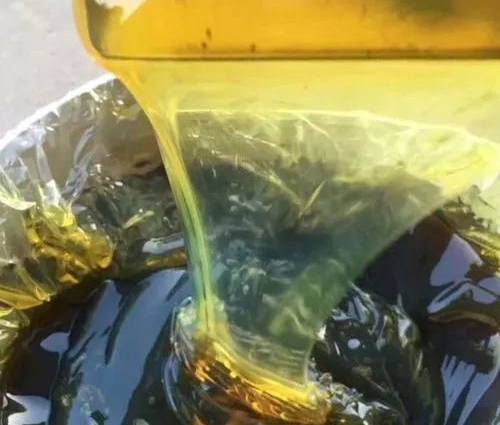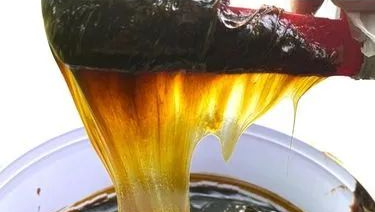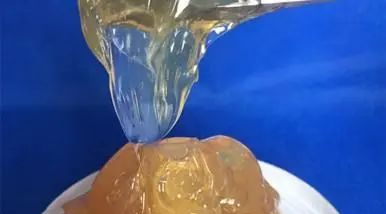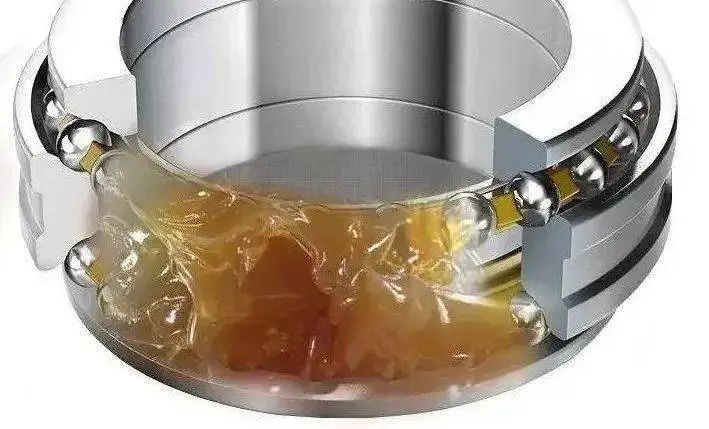What are the changes in the quality of grease in use? How to judge?
February 28, 2024
What are the changes in the quality of grease in use? How to judge? The main chemical composition of grease is Base Oil, additives and thickener, it is usually semi-solid paste, compared with liquid lubricating oil, grease can make it stick well and keep in the lubrication part of the machine will not be lost, so that the lubrication method is simple and convenient.
However, due to the influence of the external environment (such as air, water, dust or other harmful gases, etc.) in the work of the grease, and the mechanical force generated by the relative movement in the use of the grease (such as stamping, cutting, etc.), chemical and physical changes will occur. 01. Chemical changes Grease is composed of three parts: base oil, thickener and additive. When subjected to the action of light, heat and air, the oxidized base oil will generate trace organic acids, aldehydes, ketones and lactones, and the fatty acids and organic metal salts in the thickener may decompose and form trace organic acids. The additives will also oxidize or degrade to form acidic substances. The production of these acids will lead to corrosion and rust of the lubricated parts, so that the grease loses the role of lubrication protection. 02. Physical changes Grease will be subjected to repeated shearing during the working process, and it may also be due to the poor sealing conditions of mechanically lubricated parts, leading to the mixing of gray soil, impurities and moisture in the grease, etc., which may lead to the deterioration and even destruction of the soap base structure of the grease, the consistency of the grease will decline or the phenomenon of oil precipitation, and the formation of sufficient oil film on the surface of the parts will not be able to lose lubrication. Method of discrimination 1. Grease with the naked eye or feel of dust, mechanical impurities or due to mixed moisture grease emulsification white, shallow, or consistency is significantly smaller, or there is a significant odor of grease rout, etc., can indicate the deterioration of grease. 2. The use of instrumental analysis method, the most direct discrimination is to take a small number of used samples with infrared spectrometer to determine whether there is 1720CM-1 absorption peak in the sample. 3. The carbonyl index is the ratio of 1710CM-1 and 1378CM-1 absorption peaks. Or directly determine the acid value of the sample, if the acid value is greater than 1.0MGKOH/G, it can be confirmed that the grease has begun to deteriorate. The following factors from moisture, harmful gases, impurities, solvents, vacuum, radioactivity to analyze its impact on grease: Moisture effect Grease in mechanical use may be mixed with water, water can make some grease emulsification and deterioration, and even affect the rust performance of metal parts in use, will make the thickener play a dissolving and diluting role, reduce the thickening ability, make the grease thin and color change; Moisture will also affect the structural change of grease, accelerate the oxidation deterioration of grease, and promote the softening of lubricating oil and increase the consistency. There have been test results show that even 0.01% of the trace moisture will also have an adverse effect on the bearing. The effects of harmful gases Some destructive or alkaline gases have a deterioration effect on the bearing grease used, and at the same time have a corrosive effect on the bearing, especially in the case of moisture, which will further accelerate the deterioration of the lubricating oil and increase the corrosion effect on the bearing. Influence of impurities The impurities that will enter the grease during use are mainly worn mechanical impurities and falling dust. These impurities, in addition to the wear of metal parts, also promote the chemical deterioration of grease. The test shows that even if the oil content of the grease and the quality of the base oil do not change greatly, when the iron content of the lubricating oil due to wear reaches more than 0.8% and the copper content reaches more than 0.7%, the wear property of the grease has deteriorated significantly, so it can not continue to be used. Solvent effect Generally, organic solvents dilute and dissolve soap base - mineral oil lubricating oils, therefore, for some unavoidable contact with organic solvents, solvent - or gasoline-resistant lubricating oils should be selected, especially in aircraft or automobiles such as engine fuel pumps or some gasoline pump bearings should be selected fuel oil. The effect of vacuum degree High vacuum has great influence on the evaporation of lubricating oil, and at the same time, the friction coefficient increases significantly and even causes the sintering of the friction surface. Therefore, the lubricating grease used in high vacuum should be selected as the base oil with the smallest evaporation. Radioactive effect The bearings of the mechanical equipment attached to the atomic pile around the atomic power station can be affected by radiation. It is generally believed that when the ray intensity exceeds about 1xl0 to the 6th power Sv, it will have a deterioration and deterioration effect on the selected base oil. If the rays continue to act, the base oil will gelled, and further solidification will occur and serious accidents will occur. When the ray intensity exceeds 0.5-3xL06 Sv or so, the structure of the selected soap-based thickener will be damaged and softened. Therefore, the mechanical parts with radiation action must be selected for radiation-resistant lubrication grease. Grease will be lost in use, there are three main reasons: 01. Chemical reasons Due to the influence of heat and air on the friction and lubrication parts, the base oil and thickener are oxidized, resulting in the destruction of the soap structure of the grease and softening loss during use. 02. Physical reasons Due to the operation of the friction part, the grease is constantly affected by the shear stress, so that the soap structure is damaged, softened and lost. 03. Reasons for impurities Friction occurs in the body of the movement, and these metal powders can accelerate the oxidation of the grease to produce organic acids, thus destroying the structure of the grease and causing the failure of the grease. The correct selection of grease according to the working condition of the equipment (including load, temperature, speed, etc.) can extend the service life of the grease.









